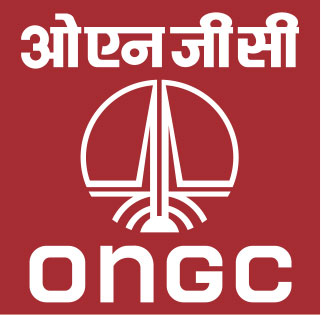The decisions making process of the Company follows the following Channel:
Overall management of the Company is vested with the Board of Directors of the Company. The Board of Directors is the highest decision making body within the Company. As per the provisions of the Companies Act, 1956 certain matters require the approval of the shareholders of the Company in General Meeting. The Board of Directors is accountable to the shareholders of the Company, which is the ultimate authority of a Company. ONGC, being a Public Sector Enterprise (PSE), the Board of Directors of the Company is also accountable to Government of India.
The day-to-day management of the Company is entrusted to the Chairman & Managing Director and the Functional Directors and other Officers of the Company. The Chairman & Managing Director, Functional Directors and other officers exercise their decision-making powers as per this delegation of powers.
Board Procedures
(A) Institutionalised decision making process:
With a view to institutionalize all corporate affairs and setting up systems and procedures for advance planning for matters requiring discussion/decisions by the Board , the Company has defined guidelines for the meetings of the Board of Directors and Committees thereof. These Guidelines seek to systematize the decision making process at the meetings of Board/Committees, in an informed and efficient manner.
(B) Scheduling and selection of Agenda items for Board /Committee Meetings:
(i) The meetings are being convened by giving appropriate notice after obtaining the approval of the Chairman of the Board/Committee. Detailed agenda, management reports and other explanatory statements are circulated in advance amongst the members for facilitating meaningful, informed and focused decisions at the meetings. To address specific urgent need, meetings are also being called at short notice. The Board is also authorized to pass Resolution by Circulation for all such matters which are of utmost urgent nature.
(ii) Where it is not practicable to attach any document or the agenda is of confidential nature, the same is placed on the table at the meeting with the approval of the C&MD. In special and exceptional circumstances, additional or supplemental item(s) on the agenda are permitted. Sensitive subject matters are discussed at the meeting without written material being circulated.
(iii) The agenda papers are prepared by the concerned officials and submitted to concerned functional Directors for obtaining approval of the Chairman and Managing Director. Duly approved agenda papers are circulated amongst the Board members by the Company Secretary.
(iv) The meetings are usually held at the Company's Registered Office in New Delhi.
(v) Presentations are made at the Board/ Committees covering Finance, Operations & Business Segments, Human Resources, Marketing and Joint Venture Operations etc. of the Company before taking on record quarterly/annual financial results at the pre-scheduled Board/Committee Meetings.
(vi) The members of the Board have complete access to all information of the Company. The Board is also free to recommend inclusion of any matter in agenda for discussion. Senior management officials are called to provide additional inputs to the items being discussed by the Board, as and when necessary.
(C) Recording minutes of proceedings at the Board Meeting:
Minutes of the proceedings of each Board/Committee meeting are recorded. Draft minutes are circulated amongst all members of the Board/ Committee for their comments. The minutes of the proceedings of meetings are entered in the Minutes Book.(D)
Follow-up mechanism The guidelines for the Board and Committee Meetings facilitate an effective post meeting follow-up, review and reporting process for the action taken on decisions of the Board and Committee. Every functional Director submits follow-up Action Taken Report (ATR) on the areas of his responsibilities, once in a quarter, on the decisions/instructions of the Board.(E) Compliance Every functional Director while preparing the agenda notes is responsible for and is required to ensure adherence to all the applicable provisions of law, rules, guidelines etc. The Company Secretary has to ensure compliance to all the applicable provisions of the Companies Act, 1956, SEBI Guidelines, Listing Agreement, and other statutory requirements pertaining to capital market. A Quarterly Compliance Report confirming adherence to the applicable laws, rules, guidelines and on Corporate Governance is submitted to the Board of Directors for their review.
PROCEDURES FOLLOWED IN DECISION-MAKING PROCESS, INCLUDING CHANNELS OF SUPERVISION AND CCOUNTABILITY :
The decision making process of the Company follows the following channel:
Overall management of the Company is vested with the Board of Directors of the Company. The Board of Directors is the highest decision making body of the Company within the guidelines defined by the Government.
As per the provisions of the Companies Act, 1956 certain matters require the approval of the shareholders of the Company in general meeting. Similarly, in terms of the guidelines of Department of Public Enterprises certain matters require the approval of Govt /Cabinet.
The Board of Directors is accountable to the shareholders of the Company, which is the ultimate authority of a Company. ONGC being a Public Sector Enterprise (PSE), the Board of Directors of the Company are also accountable to Government of India.
The day-to-day management of the Company is entrusted on the Chairman & Managing Director supported by Functional Directors and other Officers and staffs of the Company. The Board of Directors has delegated powers to the Chairman & Managing Director, Functional Directors and other executives of the Company through a Delegation of Powers process. Chairman & Managing Director, Functional Directors and other officers exercises their decision-making powers as per this delegation of powers entrusted on them.
The Chairman & Managing Director, Functional Directors and other executives are accountable to Board of Directors for proper discharge of their duties & responsibilities. Several sub committees have been set up of the Board of Directors under corporate governance for decision making like Audit and ethics, Health, Safety and Environment , Financial management,HRM committee etc.
The powers, which are not delegated, are exercised by the Board of Directors subject to the restrictions and provisions of the Companies Act, 1956.

